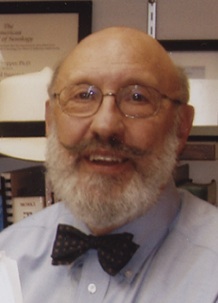 |
William Hiebert, General Secretary of the International Family Therapy Association (IFTA)
The cornerstone of every society is the family. Is there a growing need for family therapy?
Family Therapy is an American export. While individual psychotherapy began in Vienna with Freud. In the 1960s, American psychiatrists, trying to solve the enigma of schizophrenia, came to the conclusion that they needed to see the entire family, not just the patient. Thus, family therapy began with the idea that the entire family was the patient.
Family therapy spread to the UK first, and then into the European continent. Its growth as a treatment model came as a result of new outcome research that indicated that working with the whole family brought quicker results that lasted longer than individual therapy.
As cultures around the world experience the stresses and strains of greater urbanization, globalization, and the fracturing of the kinship networks, the interest in family therapy has proliferated as cultures try to deal with increased divorces, stepfamilies and conflicts within families due to increased geographical mobility and cross-cultural marriages.
For your upcoming XXIII World Family Therapy Congress the theme will be “Changing Traditions and Systemic Therapy: Dangers and Opportunities for Families”? Why?
Families are on the forefront of changes, impacted by all of the events that shape our world from wars to the emerging technological innovations. Last year the World Congress focused on how technology impacts both families and family therapy.
This year we are focusing on how modern life affects families, changing age old patterns that sometimes assist families by creating order and stability and, at other times, have become too rigid and inflexible. Family therapy tries to assist change when it is necessary for individuals in families to flourish while at the same time preventing total chaos and disconnectedness.
The International Family Therapy Association (IFTA) provides international conferences. Why are they important?
IFTA began as a result of therapists in Eastern Europe hearing about “family therapy” and wanting to know more about it. Therapists in Czechoslovakia organized the first world congress in 1987, bringing Western family therapists and this new treatment model to the East to begin to inform and train Eastern European therapists.
It was called the East-West Bridging Congress. It was so successful, the group formed IFTA and decided that they wanted to continue this annual event whereby therapists from around the world could learn from each other and improve their therapy skills.
The World Family Therapy Congresses not only provide a forum for continued growth on the part of family therapists, but also provide a foundational educational experience for therapists from parts of the world where it is difficult to learn about family therapy.
Why did you choose Kuala Lumpur, Malaysia, as destination and the JW Marriott as venue for your World Family Therapy Congress 2015?
IFTA has been to over 15 countries in its 48 years. However, IFTA has never held a World Congress in Asia. For the last several years, we have been having increased contacts with Asian therapists who have reported a growth of interest in family therapy, from both the private sector and Asian governments. The request has been simple: we need more family therapy education and training events here in Asia.
Each year the congress staff canvasses the tourism boards and hotels of many countries seeking bids for hosting a World Family Therapy Congress. For the 2015 World Congress, the JW Marriott presented the best packages for the congress delegates from over 25 countries.
What are the top three challenges for IFTA these days?
Informing the therapy community world-wide of the existence of the World Congresses is a major concern. A second challenge is finding a venue that can house a congress that has between 150 and 200 workshops in three days and at the same time keep it affordable for therapists, especially from developing countries. Third, finding major speakers who have a reputation around the world is another problem because most family therapy leaders are not known world-wide but rather more regionally.
The International Family Therapy Association (IFTA) was an outgrowth of the East-West Bridging Congress conducted in Prague in 1987. Since then, IFTA’s goal has been the same: Advancing family therapy worldwide by promoting research, education, and sound practice while promoting international cooperation and the exchange of knowledge and ideas that support the health and well-being of families and persons around the world. The 23rd World Family Therapy Congress will take place from 11 to 14 March 2015 in Kuala Lumpur, Malaysia. www.ifta-familytherapy.org, www.ifta-congress.org